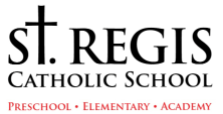
Children at school by Lucelia Ribeiro is licensed by CC BY-SA 2.0.
The purpose of this site:
The purpose of this site is to provide a set of resources for teachers and students in developing 21st-century skills through music. According to Egbert (2009), the 21st-century skills include include:
Learn more about the 21st-century skills at the Partnership for 21st Century Skills.

Classroom Technology by Jeff Peterson is licensed under CC by 2.0.
How to use this site:
The resources identified in this site can be used in a variety of ways to enhance the learning process in music class. When considering what technology to use, teachers should avoid technology for technology’s sake. Instead, identify the objectives of your lesson and potential ways that technology can enhance instruction without detracting from the purpose of the lesson. The Core Music Standards should always serve as a starting point when designing instruction. This curriculum and technology matrix can provide guidance for designing authentic technology experiences in music.
| Core Music Standards | 21st-Century Skills | |||||
| CREATING | Content Learning | Communi-cation | Critical Thinking | Creativity | Problem Solving | Produc-tion |
| Imagine: Generate musical ideas for various purposes and contexts | x | x | x | |||
| Plan and Make: Select and develop musical ideas for defined purposes and contexts | x | x | x | |||
| Evaluate and Refine: Evaluate and refine selected musical ideas to create musical work that meets appropriate criteria | x | x | x | x | ||
| Present: Share creative musical work that conveys intent, demonstrates craftsmanship, and exhibits originality | x | x | x | |||
| PERFORMING | Content Learning | Communi-cation | Critical Thinking | Creativity | Problem Solving | Produc-tion |
| Select: Select various musical works to present based on interest, knowledge, technical skill, and context | x | x | ||||
| Analyze: Analyze the structure and context of varied musical works and their implications for performance | x | x | ||||
| Interpret: Develop personal interpretations that consider creators’ intent | x | x | x | |||
| Rehearse, Evaluate, and Refine: Evaluate and refine personal and ensemble performances, individually or in collaboration with others | x | x | x | x | ||
| Present: Perform expressively, with appropriate interpretation and technical accuracy, and in a manner appropriate to the audience and context | x | x | x | |||
| RESPONDING | Content Learning | Communi-cation | Critical Thinking | Creativity | Problem Solving | Produc-tion |
| Select: Choose music appropriate for a specific purpose and context | x | x | ||||
| Analyze: Analyze how the structure and context of varied musical works inform the response | x | x | ||||
| Interpret: Support interpretations of musical works that reflect creators’/performers’ expressive intent | x | x | x | |||
| Evaluate: Support evaluations of musical works and performances based on analysis, interpretation, and established criteria | x | x | x | |||
| CONNECT | Content Learning | Communi-cation | Critical Thinking | Creativity | Problem Solving | Produc-tion |
| Connect #10: Synthesize and relate knowledge and personal experiences to make music | x | x | x | x | ||
| Connect #11: Relate musical ideas and works to varied contexts and daily life to deepen understanding | x | x | x | |||
The content of this site was informed by the following sources:
Brown, A. (2014). Music Technology and Education: Amplifying Musicality. New York: Routledge.
Criswell, C., & Menasche, E. (2009). Redefining music technology. Teaching Music, 16(5), 30-37. Retrieved from EBSCO database. (AN36784272)
Egbert, J. (2009). Supporting Learning with Technology: Essentials of Classroom Practice. Upper Saddle River, NJ: Pearson.
Gouzouasis, P., & Bakan, D. (2011). The future of music making and music education in a transformative digital world. The University of Melbourne Refereed E-journal, 2. Retrieved from http://www.academia.edu/download/30885819/012_GOUZOUASIS.pdf
Laakso, B. (2015). Music Tech 101: A Group Study Course in Modern Music Production Using Audio Technology. Van Nuys, CA: Alfred.
Richmond, F. (2015). Learning Music with GarageBand on the iPad. Van Nuys, CA: Alfred.
Rudolph, T., & Leonard, V. (2014). Musical iPad: Performing Creating, and Learning Music on Your iPad. Milwaukee: Hal Leonard.
Ruismäki, H., Juvonen, A., & Lehtonen, K. (2013). The iPad and music in the new learning environment. The European Journal of Social & Behavioural Sciences, 6, 1084-1096. Retrieved from http://www.futureacademy.org.uk/files/menu_items/other/ejsbs85.pdf
VanWeelden, K., & Heath, J. (2013). Low-budget apps for students of all abilities. General Music Today, 27(1), 45-47. Retrieved from http://gmt.sagepub.com/content/27/1/45.short
